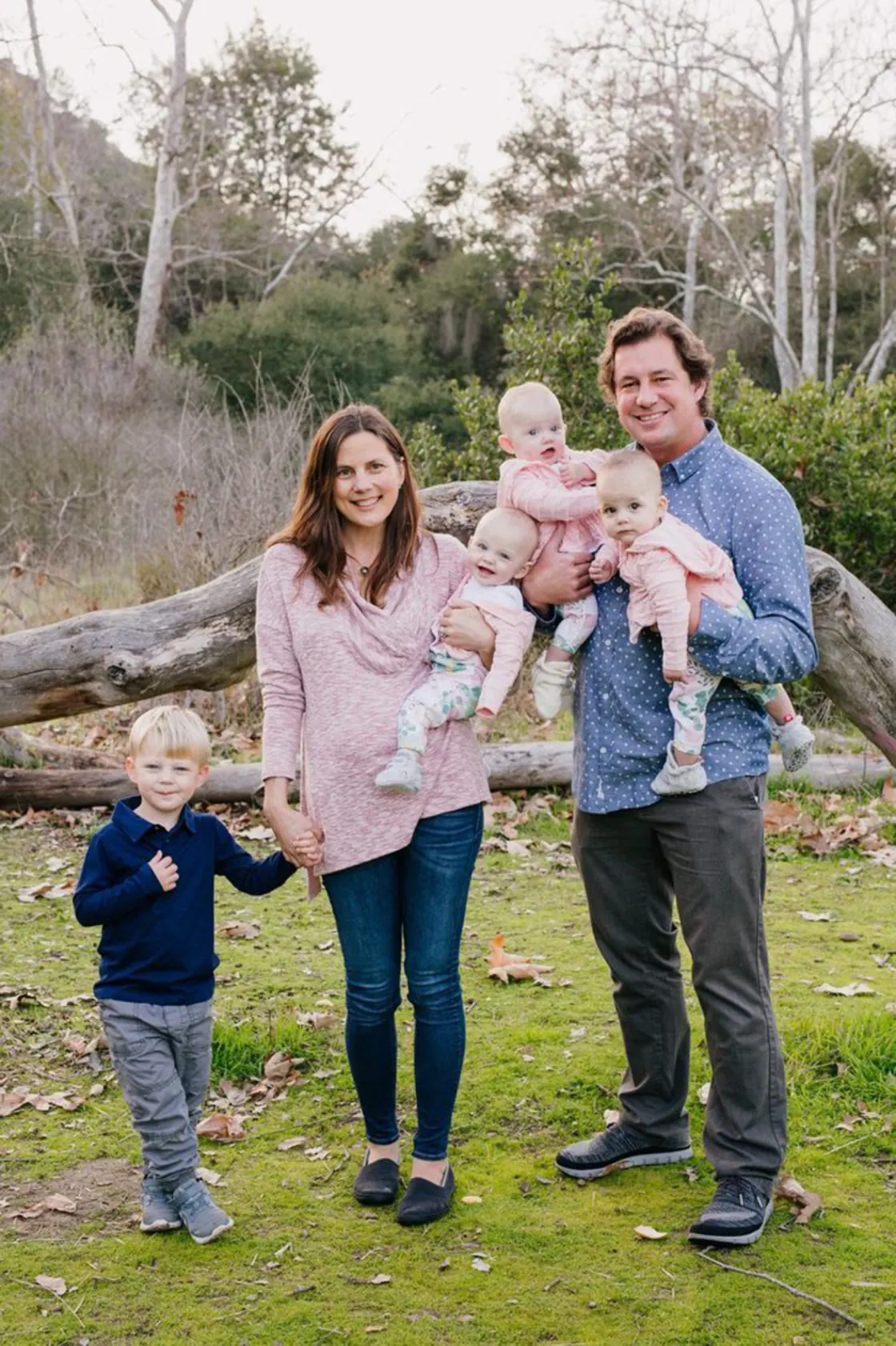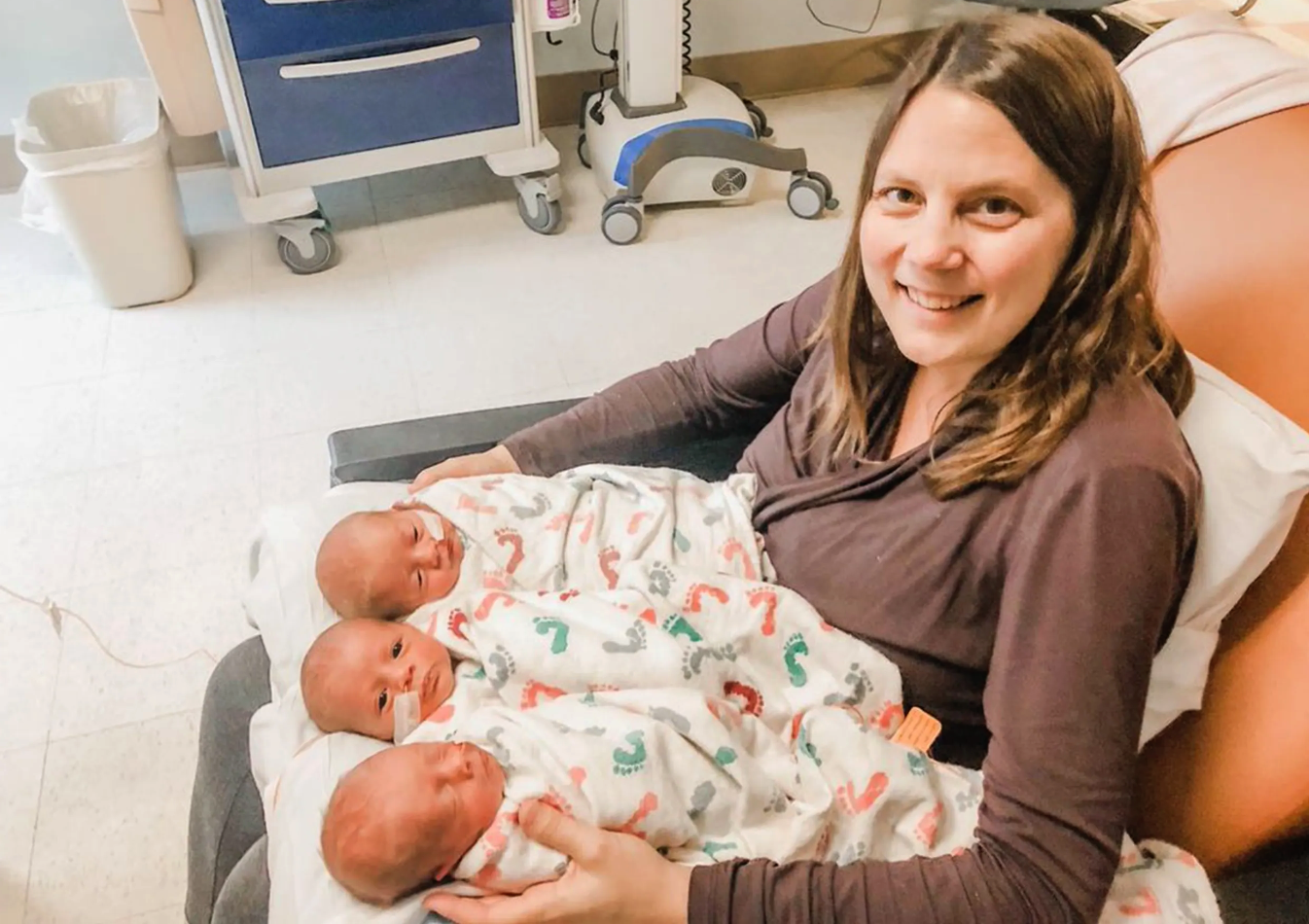For Genevieve Knox, the pregnancy journey was anything but ordinary. Genevieve “Genna” Knox was shocked when she conceived easily at 39. But the surprises didn’t end there. Her singleton pregnancy ended up being triplets. The first twist came at her 20-week pregnancy scan, when the ultrasound technician suddenly grew quiet. “She’s like, ‘Wait, you’re having twins?’ And I said, ‘No, I’m not,’” Knox tells TODAY Parents. “Then I looked up and I could see clear as day that there were two babies.” Knox, a fifth grade teacher in San Diego, California, tells TODAY.com that she opted out of nuchal translucency testing, or an NT scan, during her first trimester. Due to her advanced maternal age, Knox had undergone extensive prenatal testing. “All the blood work came back normal, so my doctor asked me if I wanted to wave the nuchal and I said, ‘Oh, sure.’ I was working full-time and it was just one less appointment,’” Knox recalls.

“Whoops.” Knox notes that she and her husband, Kyle, who are also parents of 6-year-old son, Liam, felt like the “luckiest people in the world” when they learned they were having multiples. “I started having kids later in life, and I didn’t know if I’d even be able to have one,” she says. “We were overjoyed.” And maybe slightly freaked out about logistics. “I remember telling (Kyle) ‘I can’t even fit 3 car seats in my car!'” Knox said. Little did she know they’d need a van. Nine weeks later, the Knoxes decided to get keepsake four-dimensional ultrasounds in a non-medical setting. It wasn’t for diagnostic purposes — they just wanted some detailed photographs to show their families. Knox recalls how the sonographer kept moving the wand across her belly. It went on for so long that she started to grow uneasy. “Finally he goes, ‘How far along were you when you found out you were having twins?’ And I said, ‘Oh, gosh you’re not going to believe it,’ and then I told him what happened at the 20-week scan,” Knox says. “I barely remember anything else about the moment.

I was in total shock,” she says. Knox gave birth to daughters, Kaylee, Lily, and Cecilia, at 33 weeks gestation on March 21, 2019. The sisters spent a few weeks in the neonatal intensive care unit (NICU), but are now in preschool and thriving. Dr. Sean Daneshmand, director of Maternal-Fetal Medicine at Scripps Clinic in La Jolla, California, tells TODAY that hidden triplet syndrome is “not as uncommon as you would think.” “When the babies are very small, one baby can hide behind the other,” Daneshmand, who treated Knox, says. “Typically by 26, 27, 28 weeks — the baby that’s been missed will suddenly appear.” According to Dr. Ashley Roman, director of Maternal Fetal Medicine at NYU Langone Health, the optimal time to identify how many fetuses a person is carrying is between 8 and 10 weeks. Remember that Knox opted out of her first trimester NT scan.

“As the baby gets bigger, how much our ultrasound probe can see is a little bit more limited by the size,” Roman tells TODAY.com. “So while we can see individual organs, it’s hard to see the whole baby in one view after about 15, 16, weeks. Ultimately, it becomes a little easier as time goes on to miss a second or third fetus.” “But it’s still unusual,” she added. “Especially since ultrasound technology is the best it’s ever been.” Cecilia, the “hidden triplet,” is the most challenging, Knox says. “She has a very big personality,” Knox shares. “She is hilarious and we love her to death, but she definitely marches to the beat of her own drum.” After Knox, now 43, shared her story on TikTok, it went viral with more than one million views. “Omg you found out at 7 months?? I’m only 3 months pregnant and I’m freaking out now,” one person commented. Related video:
